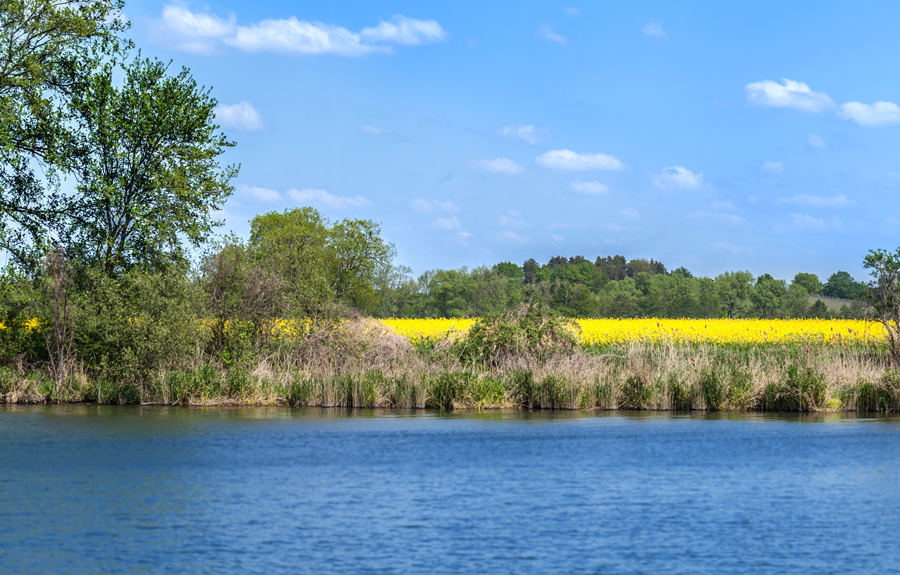Careful planning to help prevent herbicide moving to water courses
15th August 2019
The Voluntary Initiative, an industry led programme which promotes responsible use of pesticides, has highlighted five key actions where careful planning by farmers and their agronomists can make a tangible difference in preventing five oilseed rape herbicides from reaching water courses.
The Voluntary Initiative, an industry led programme which promotes responsible use of pesticides, has highlighted five key actions where careful planning by farmers and their agronomists can make a tangible difference in preventing five oilseed rape herbicides from reaching water courses.
Five key herbicides used to grow oilseed rape and control black-grass and other weeds in arable rotations are being detected with increasing frequency in surface water. The OSR herbicides being identified are metazachlor, propyzamide, carbetamide, quinmerac and clopyralid. Propyzamide is the most frequently discovered, while quinmerac and clopyralid are more difficult for water companies to remove.
The organisation, which is working with Anglian Water, Affinity Water and Northumbrian Water as part of the Think Water campaign, aims to minimise the movement of these OSR herbicides and build on existing good practice to protect water and avoid restrictions on these products.
Dr Neal Evans, The Voluntary Initiative Operations Director, commented: “We are working with water companies and the farming and crop protection industry to raise awareness of the issue, improve practices and develop new tools that will support farmers in continuing their responsible use of these herbicides.”
The Voluntary Initiative has provided five points to consider when minimising the movement of these OSR herbicides to water:
- Field selection: Although dictated by rotation to a degree, aim to grow oilseed rape on a field that is low-risk (e.g. doesn’t slope to a watercourse, less susceptible to run-off or further away from a water course). High-risk fields might also include those that have problem levels of black-grass or other grassweeds where metazachlor, propyzamide, and carbetamide may be used.
- Cultivation and tramlines: Cultivation is a key factor in managing risk. Considering appropriate establishment and direction of working travel are important factors in minimising risk according to soil type and topography. Lay out tramlines so that they do not provide a direct route for water to leave the field (e.g. enter the crop at the top of the field). If at all possible, disturb the surface compaction in the tramlines. Those with GPS guidance on sprayers may like to switch off tramlining kits when drilling OSR.
- Buffers: Buffer zones next to watercourses can be effective in reducing run-off and soil particles that may contain pesticides reaching watercourses. A wider buffer zone is more effective. Cross compliance dictates a two-metre minimal buffer zone, but The Voluntary Initiative recommends establishment of a six-metre buffer alongside watercourses if possible. Wider buffers are advisable in particularly vulnerable areas.
- Check designations: Use the Environment Agency’s WIYBY Drinking Water Safeguard Zones Website (http://bit.ly/EA_WIYBY) to check whether planned oilseed rape fields are in a Drinking Water Safeguard Zone. Avoid growing rape, if it requires herbicides likely to move to water, in these areas if at all possible, particularly if they are high-risk fields.
- Integrated Pest Management: It is important to only use pesticides when necessary and there are a number of ways to reduce reliance on pesticides including cultivations, drilling dates and regular crop inspections among others. Talk to your agronomist to make sure that, where possible, you are utilising herbicides less likely to move to water where there is a risk of this occurring. As always: use the right product for the job, at the right time and to follow best practice.
To find out more about The Voluntary Initiative visit:
https://voluntaryinitiative.org.uk/schemes/stewardship/osr-herbicides-think-water/

